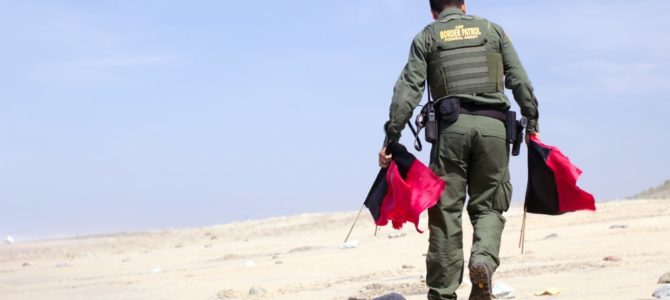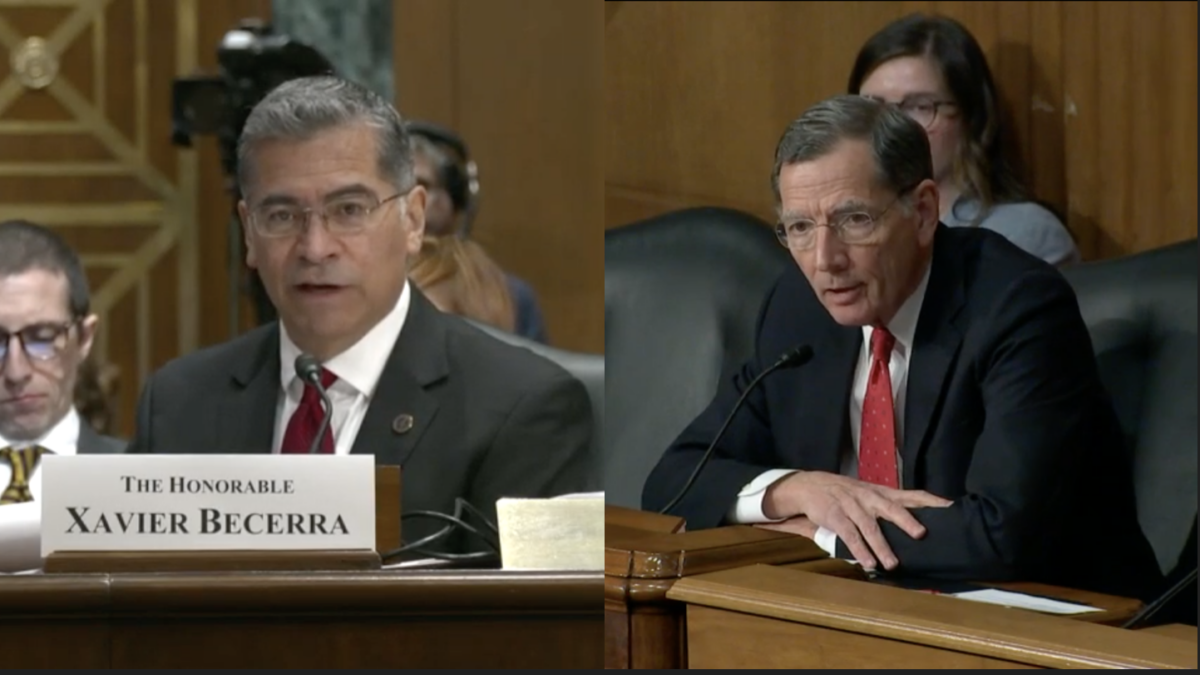
It was more than 25 years ago that we met as I worked in a border-area emergency room, but my memory of her remains crystal-clear even today.
Her coal-black eyes were piercing and never rested. They radiated fear and hatred. They engaged anyone who moved near her, digesting and assessing, as she tried to answer the ancient question: “Friend or foe?”
Her slow, cat-like movements were like clockwork: Clench her fists, flex her arms, flex her knees, slowly test the restraints on her wrists, look at the door, look at the window, look at the officer assigned to monitor her, strain to hear the sounds in the hall. She never seemed to worry with the 18-inch incision in her abdomen. She was ready to escape at the first opportunity. She had no time for her pain.
Yet it was pain that brought her here, and that saved her life. A week earlier, a call to emergency services had resulted in her passage through the doors of the emergency room and into the public health system.
A man arrived just after her who asked about her, although no one ever thought he was overly concerned about her. He vanished from the crowded waiting area soon after she was taken to surgery, where yards of dead bowel were removed, and the deadly meal she had ingested revealed.
She was a drug mule, carrying within her bowel packet after packet of cocaine, packed inside condoms she had swallowed. One of the condoms had ruptured, and the drug attacked her body, killing much of her intestines, pushing her heart to its limit, and driving her mind to near-insanity.
This story was not particularly unusual. The staff recognized the tattoo on her right breast, indicating her status as a mere piece of property to her criminal overlord, disposable and replaceable.
The more experienced hands in the emergency room diagnosed her almost at a glance. They had seen this novella many times. She was not the first, and she would not be the last. She was just the latest. The story continues today.
Most drug mules probably never found themselves restrained in a hospital bed, arrested for transporting nearly a pound of cocaine, their abdomen stretched and stitched and sore and scarred. Most did just what we could tell she had been attempting to do, her stomach filled with laxatives as she desperately fought to pass the deadly cargo.
To fail to pass the drugs would have meant death. The drugs would have been recovered by someone through whatever means necessary; how they might have been recovered requires little imagination. In the dark world in which she lived, her life was worth much less than the drugs she carried.
She was lucky, we thought; yet one look at her and we were not so sure she felt lucky at all. Her eyes were searching for a way to escape her fate. Experience told us she would not. She was trapped forever.
The characters change, but the story continues, chapter after chapter, gradually revealing its plot line: to get to the United States, there is a price. For most, it is never fully paid.
Many of us who enjoy the blessings of citizenship in the United States do not even consider that someone has chosen to build a money-making enterprise off shipping persons. We do not even consider the southern cartels as a quasi-governmental logistical enterprise capable of moving drugs or people—or other things, terrible things—into our country.
Many are convinced that most of the immigrants they see in the snippets on the evening news seek to come to the United States for a better life, wishing no harm and merely hoping to contribute. It is a shallow, simple belief, but easy to grasp and cling to for self-validation. Who does not, after all, want to feel he is doing good deeds? Sadly, this belief attracts and enables the very worst among us to take advantage of the very weakest.
No one doubts that a life here is better than a life in poverty in Mexico, Guatemala, Honduras, or even Somalia or Syria, from where some of these southern refugees seeking asylum hail. To assume it is merely a question of a better life ignores the dangers to all parties in this unwilling transaction. Nothing is ever quite what it seems.
Of course, a few seeking that better life do cross into the United States of their own accord, making their way unnoticed and unaccounted for. For many more, however, there is a transaction to enter the United States. In its simplest form, that transaction involves a hefty sum often representing a year’s labor or more, paid to many greedy hands along the way and never seeming quite enough. There is no guarantee of success, no refund provided in the event of capture, rape, or murder.
For others, those without cash, there are other options. A young child might be traded—or to call it what it truly is, sold—to someone as an asylum surety, for some darker purpose, or both. Some sell their bodies, trading degradations for the chance at a life they hope might be better. Others become tools for the illicit drug trade, carrying drugs in their bodies in hopes it will secure their future.
Yet in the end they usually secure nothing. Many die along the way. Some are scarred emotionally forever. Some are sold into servitude, modern slaves in a sex trade that flourishes even today. Some are pulled into the cartels, used by their masters as pawns in their quest to build an ever larger and more powerful criminal enterprise.
In the end, none here unlawfully are ever free. None will ever enjoy the full light of freedom that can only come through legal, lawful immigration.
Whether detained at a hospital after a life-saving surgery, working as the “best employee we have ever had,” or sitting in a classroom and pursuing the highest of degrees, all will forever be anxious at that knock at the door, that chance encounter at the supermarket, or that next call from a number they don’t recognize. They know the evil that lurks there, waiting to exact its next payment.
While nothing good is ever free, the unlawful carries a price incalculable. It is time Americans realize that to truly help the weak, the strong must stand united for lawful immigration and the value of all human life.








